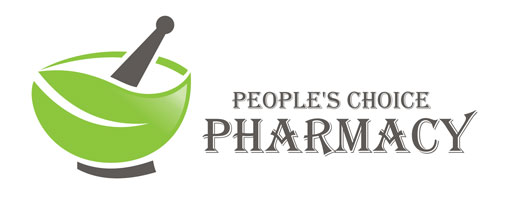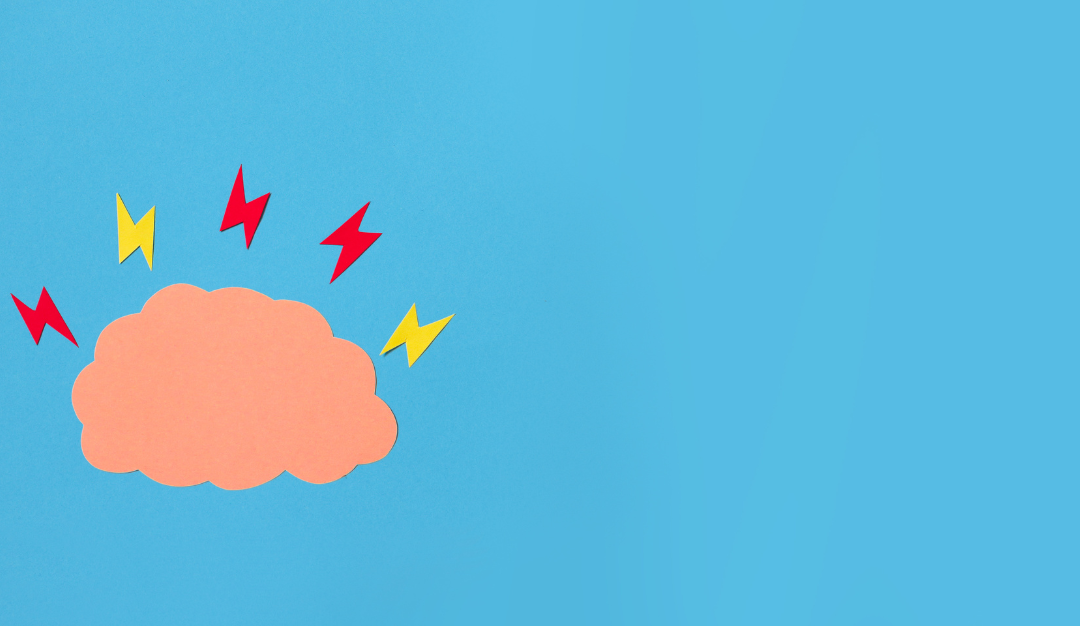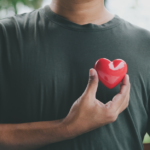Headaches are a common condition that most people will experience at some point in their lives. Often they make it difficult to go to work or school, so nonsteroidal anti-inflammatory drugs (NSAID), such as Ibuprofen or Advil, are used to relieve symptoms.
However, these superficial treatments do not address the root cause of chronic headaches and can have adverse health effects when overused – especially on the liver!
Usually, headaches are our body’s way of telling us that something is wrong – perhaps that you have a hormone imbalance, need to get more sleep, drink more water or you are sensitive to a food or additive. Rather than masking these signals with drugs, there are plenty of natural ways to relieve headaches and get to the root cause of why they keep coming back. Keep reading for some effective home remedies!
Why Do We Get Headaches?
Headaches occur when nerve endings called nociceptors respond to headache triggers. These nerves send pain messages to the brain, beginning with a headache.
Common headache triggers include:
- Stress
- Lack of sleep
- Eyestrain, back strain, or neck pain
- Certain smells, such as tobacco or perfume in the environment
- Food sensitivities
- Alcohol consumption
- Dehydration
- Nutrient deficiency
- Caffeine withdrawal
- Hormone imbalances
If severe or chronic, headaches can also be indicative of a more serious underlying health condition or injury. It is important to pinpoint the root cause of severe headaches and work with a practitioner for a proper diagnosis.
Natural Remedies For Headaches
What can be done to relieve headaches? Your first reaction might be to reach into your purse for an Advil. But studies have shown that NSAIDs are more harmful to our health than many people realize! They can interact negatively with other medications and are harsh on your liver and gastrointestinal system.
Instead, try some of these natural methods to stop headaches at the source:
1 – Drink more water
One of the most common causes of headaches is dehydration. If you are experiencing one, it is a good idea to drink some water right away. Research shows that increased water intake reduces the frequency and severity of headaches. You can also get more hydration by eating water-rich foods like fruits and vegetables!
2 – Avoid alcohol
Even if you are drinking lots of water, alcohol is dehydrating and provokes an inflammatory response in the body, making it a risk factor for headaches. If you experience frequent or severe headaches, it is recommended to reduce your alcohol intake to see if symptoms improve.
3 – Take magnesium
Low magnesium levels are associated with more frequent and more severe headaches. Studies have shown that supplementation, with around 200-600 mg a day, can be hugely beneficial for headaches and even migraines. As well, magnesium can be found in whole food sources such as leafy greens, beans, dairy products, and chocolate.
4 – Use essential oils
Certain concentrations of plant extracts can help treat headaches, such as peppermint, eucalyptus, and lavender essential oils. The next time you feel a headache coming on, try diffusing one of these aromas or applying a small amount, mixed with a carrier oil like jojoba, to the temples and wrists.
5 – Take a B-complex vitamin
The B vitamins are involved in the synthesis of neurotransmitters like serotonin, which tend to be deficient in people who suffer migraines or frequent headaches. Studies show that B vitamin supplements that include riboflavin (B2), folate, and B12 can be useful in reducing headache symptoms.
6 – Apply a cold compress
This is a cost-effective and natural way to treat headaches. Applying a cold compress to your forehead or neck will decrease inflammation and constrict the blood vessels, which lowers the severity of headache pain.
7 – Try stretching
Many of us stay in a stagnant position, whether sitting at our desks or hunched over our laptops, for much of the day. Unsurprisingly, this can create tension in the body that leads to headache pain. Taking regular breaks every 30-60 minutes to stretch your neck and body will help alleviate this tension. If you feel a headache beginning, a quick yoga session can also be great for relaxing muscles and stopping pain.
8 – Take a Detox Bath
This can help reduce tension and stress in the body and soothe the symptoms of a headache. Simply run a hot bath and add detoxifying ingredients such as baking soda, essential oils, or apple cider vinegar. As you soak, your body will release toxins and tensions that may be causing you pain.
The next time you feel the unpleasant onset of a headache, refer back to these natural remedies before you reach for any medication.
Prevention Is Key!
You may also be wondering how to prevent headaches from occurring long-term. Try focusing on these four areas to reduce your likelihood of suffering future headaches:
- Hydration. Staying hydrated throughout the day is the most simple way to reduce the risk of headaches. Not to mention, it is good for your overall health!
- Nutrition. Undereating can not only make you feel tired and grumpy, but it can also lead to headaches! It is important to eat enough at regularly scheduled intervals throughout the day to feel your best. As often as possible, try to eat nutrient-dense foods, especially those rich in magnesium and B vitamins.
- Sleep. Both too little and too much sleep have been associated with headaches. While the right amount varies from person to person, you should aim for 7-9 hours per night.
- Stress. We all have some degree of stress in our lives, but we must work to manage it to avoid headaches and other negative effects on our overall health. There are many stress-reducing practices you can implement into your life to feel better overall – from yoga to light exercise to meditation – find something that works for you.
Headaches can be uncomfortable and downright inconvenient. Thankfully, there are many ways you can reduce their frequency and severity without compromising your overall health by relying on NSAIDs.
Remember: Persistent headaches can sometimes be a sign of a more serious underlying health condition, so it is important to speak to a healthcare professional if this is a concern for you as additional testing may be necessary.
Sources:
Hindiyeh NA, Zhang N, Farrar M, Banerjee P, Lombard L, Aurora SK. The Role of Diet and Nutrition in Migraine Triggers and Treatment: A Systematic Literature Review. Headache. 2020 Jul;60(7):1300-1316. doi: 10.1111/head.13836. Epub 2020 May 25. PMID: 32449944; PMCID: PMC7496357.
Kasarla, M., & Anthes, J. (2017, July 18). The Overuse of NSAIDs. Physician’s Weekly. https://www.physiciansweekly.com/the-overuse-of-nsaids/
Arca KN, Halker Singh RB. Dehydration and Headache. Curr Pain Headache Rep. 2021 Jul 15;25(8):56. doi: 10.1007/s11916-021-00966-z. PMID: 34268642; PMCID: PMC8280611.
Maier, J., & Cazzaniga, A. (2020, June). Headaches and Magnesium: Mechanisms, Bioavailability, Therapeutic Efficacy and Potential Advantage of Magnesium Pidolate. MDPI. https://www.mdpi.com/2072-6643/12/9/2660
Meacham, J. (2022, October 3). 18 Remedies to Get Rid of Headaches Naturally.
Yuan R, Zhang D, Yang J, Wu Z, Luo C, Han L, Yang F, Lin J, Yang M. Review of aromatherapy essential oils and their mechanism of action against migraines. J Ethnopharmacol. 2021 Jan 30;265:113326. doi: 10.1016/j.jep.2020.113326. Epub 2020 Aug 30. PMID: 32877718.
Chen YS, Lee HF, Tsai CH, Hsu YY, Fang CJ, Chen CJ, Hung YH, Hu FW. Effect of Vitamin B2 supplementation on migraine prophylaxis: a systematic review and meta-analysis. Nutr Neurosci. 2022 Sep;25(9):1801-1812. doi: 10.1080/1028415X.2021.1904542. Epub 2021 Mar 29. PMID: 33779525.
Sprouse-Blum AS, Gabriel AK, Brown JP, Yee MH. Randomized controlled trial: targeted neck cooling in the treatment of the migraine patient. Hawaii J Med Public Health. 2013 Jul;72(7):237-41. PMID: 23901394; PMCID: PMC3727573.
Anheyer D, Klose P, Lauche R, Saha FJ, Cramer H. Yoga for Treating Headaches: a Systematic Review and Meta-analysis. J Gen Intern Med. 2020 Mar;35(3):846-854. doi: 10.1007/s11606-019-05413-9. Epub 2019 Oct 30. PMID: 31667736; PMCID: PMC7080891.
Razeghi Jahromi S, Ghorbani Z, Martelletti P, Lampl C, Togha M; School of Advanced Studies of the European Headache Federation (EHF-SAS). Association of diet and headache. J Headache Pain. 2019 Nov 14;20(1):106. doi: 10.1186/s10194-019-1057-1. PMID: 31726975; PMCID: PMC6854770.
Watson NF, Badr MS, Belenky G, Bliwise DL, Buxton OM, Buysse D, Dinges DF, Gangwisch J, Grandner MA, Kushida C, Malhotra RK, Martin JL, Patel SR, Quan SF, Tasali E. Recommended Amount of Sleep for a Healthy Adult: A Joint Consensus Statement of the American Academy of Sleep Medicine and Sleep Research Society. Sleep. 2015 Jun 1;38(6):843-4. doi: 10.5665/sleep.4716. PMID: 26039963; PMCID: PMC4434546.






